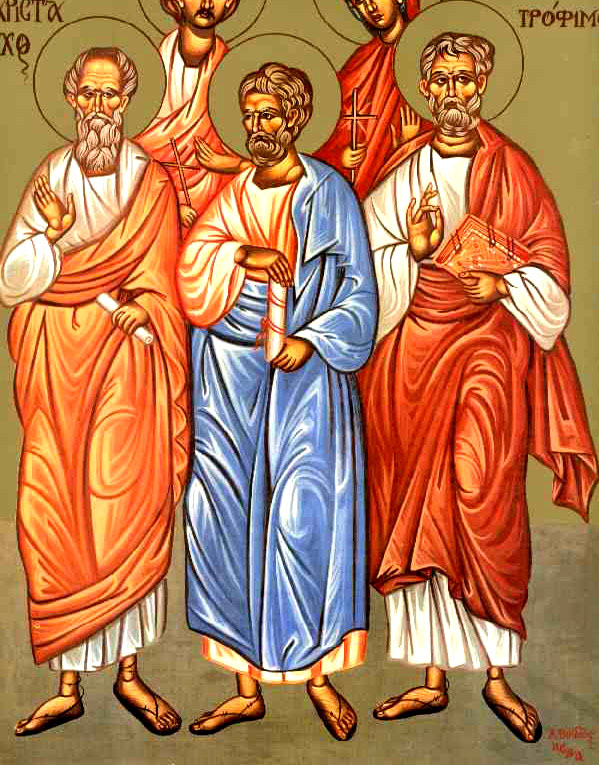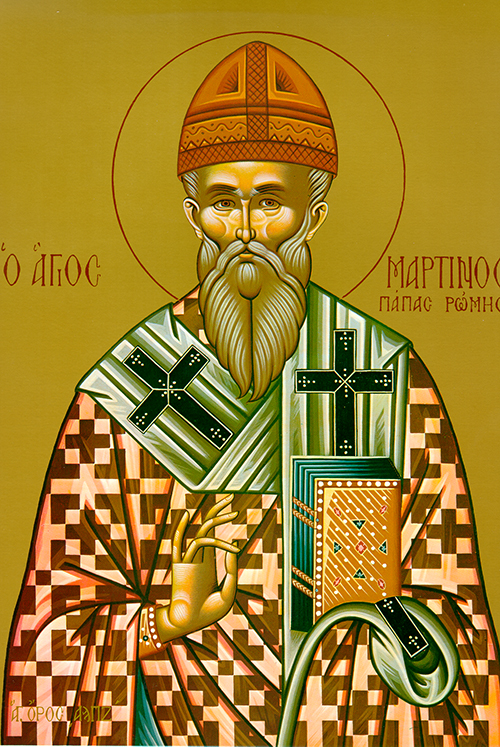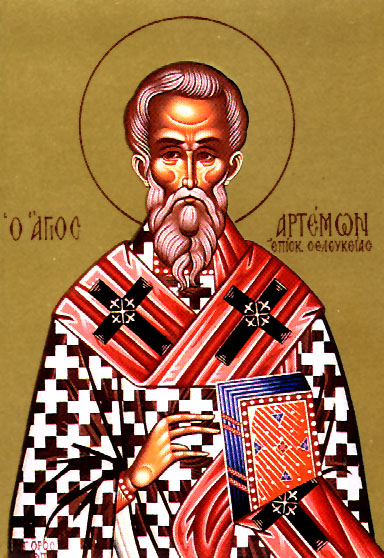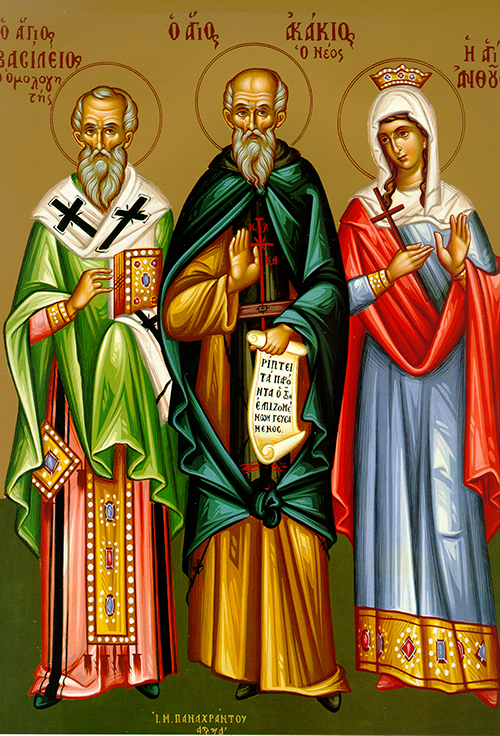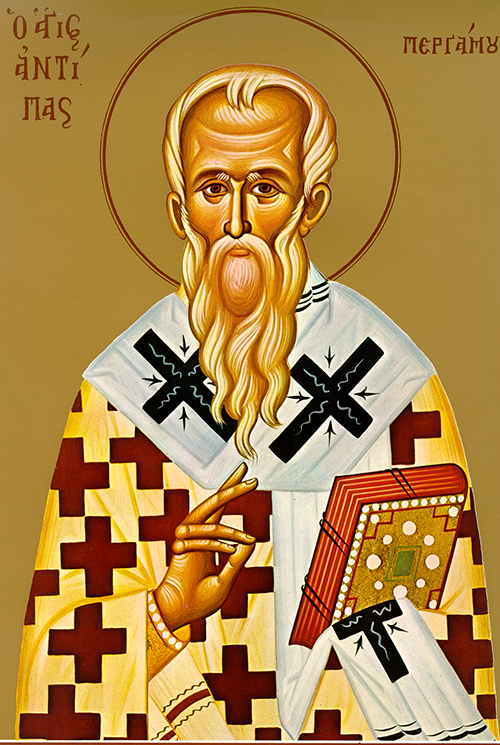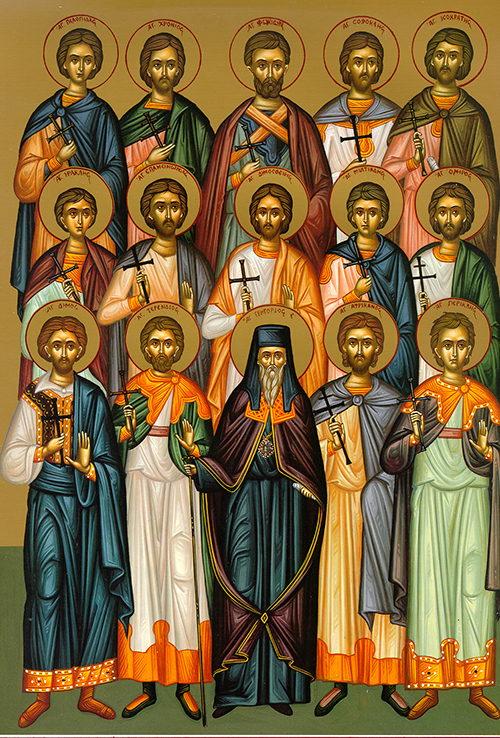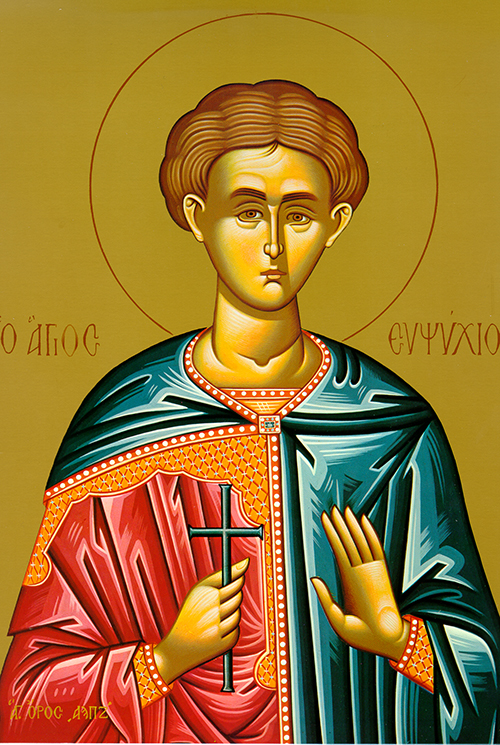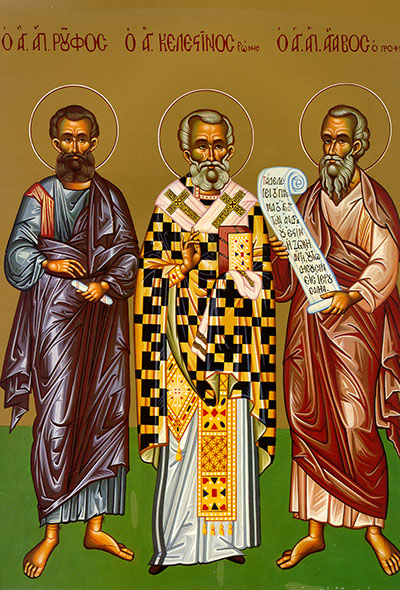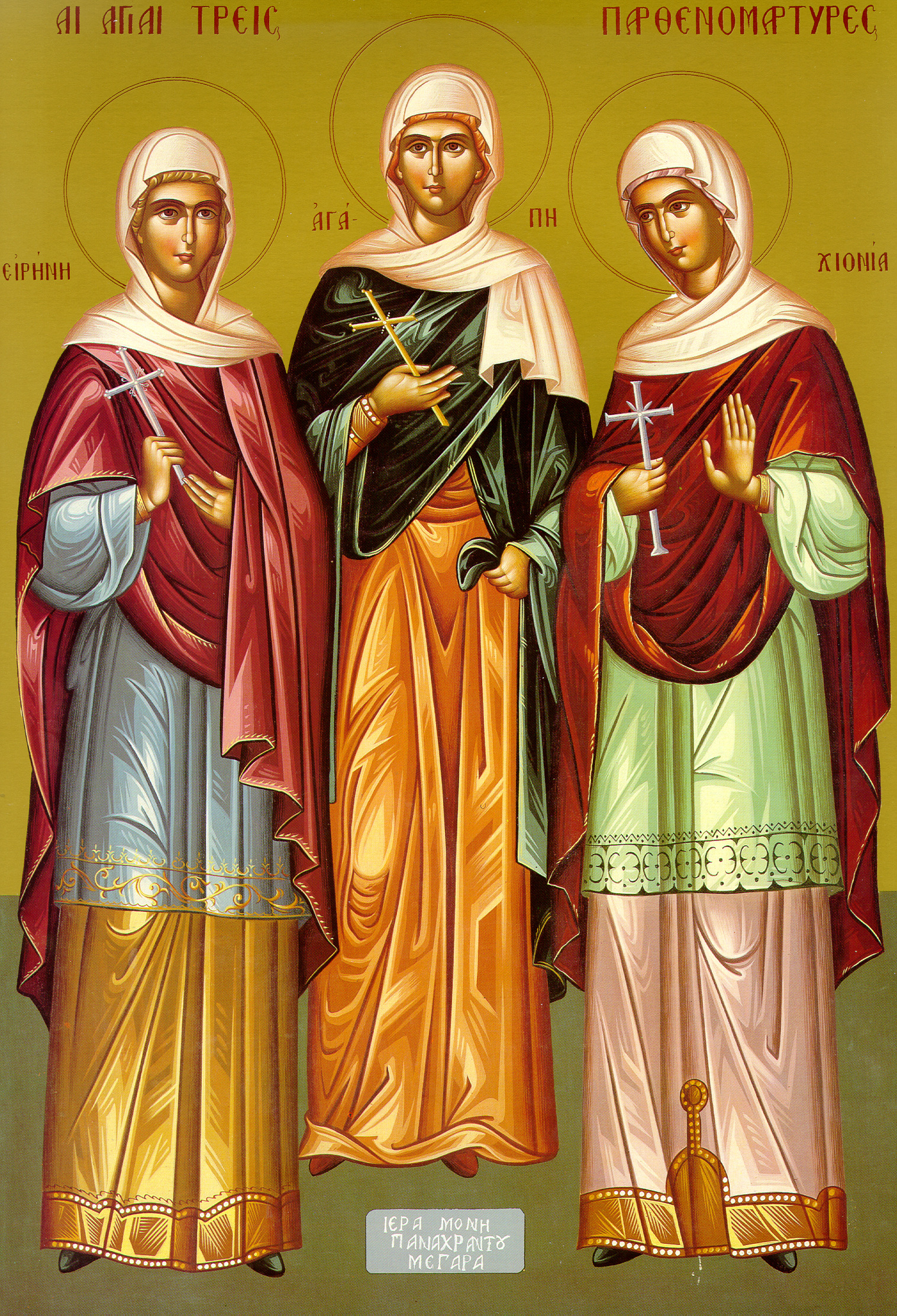

The holy martyrs Agape, Irene, and Chiona were sisters who lived at the end of the third century to the beginning of the fourth century, near the Italian city of Aquilea. They were orphaned at an early age. St. Chiona (“snow” in Greek) preserved the purity of her baptism according to the words of the Prophet-King David, “You will wash me, and I will be whiter than snow” (Ps 50/51: 7). St. Irene (“peace” in Greek) preserved the peace of Christ within herself and manifested it to others, according to the Savior’s word, “My peace I give you” (John 14:27). St. Agape (“love” in Greek) loved God with all her heart, and her neighbor as herself (Mt. 22: 37-39).
Troparion
As lambs you were led through martyrdom to Christ, the Shepherd and Lamb. You ran the race and kept the faith. Therefore, with joyful hearts we celebrate your holy memory, O most worthy martyrs, and we glorify Christ.
Kontakion
Having pledged yourselves to the Lord so gracefully, you made an offering of your blood at your martyrdom. O holy martyrs, you have been admitted to heaven’s banquet hall and to the splendid brilliance of the Light himself. As we celebrate your memory, we bless the Savior and we cry out to you: Pray to the Lord for all of us.
Epistle
Acts 8: 5-17
In those days, Philip went down to the town of Samaria and there proclaimed the Messiah. Without exception, the crowds that heard Philip and saw the miracles he performed attended closely to what he had to say. There were many who had unclean spirits, which came out shrieking loudly. Many others were paralytics or cripples, and these were cured. The rejoicing in that town rose to fever pitch.
A certain man named Simon had been practicing magic in the town and holding the Samaritans spellbound. He passed himself off as someone of great importance. People from every rank of society were paying attention to him. “He is the power of the great God,” they said. Those who followed him had been under the spell of his magic over a long period; but once they began to believe in the good news that Philip preached about the kingdom of God and the name of Jesus Christ, men and women alike accepted baptism. Even Simon believed. He was baptized like the rest and became a devoted follower of Philip. He watched the signs and the great miracles as they occurred, and was quite carried away.
When the apostles in Jerusalem heard that Samaria had accepted the word of God, they sent Peter and John to them. The two went down to these people and prayed that they might receive the Holy Spirit. It had not as yet come down upon any of them since they had only been baptized in the name of the Lord Jesus. The pair upon arriving imposed hands on them and they received the Holy Spirit.
Gospel
John 6: 27-33
At that time Jesus said to the people coming to him, “You should not be working for perishable food but for food that remains unto life eternal, food which the Son of Man will give you; it is on him that God the Father has set his seal.” At this they said to him, “What must we do to perform the works of God?” Jesus replied: “This is the work of God: have faith in the One whom he sent.”
They asked him, “So that we can put faith in you, what sign are you going to perform for us to see? What is the ‘work’ you do? Our ancestors had manna to eat in the desert; according to Scripture, ‘He gave them bread from heavens to eat.’”
Jesus said to them: “I solemnly assure you, it was not Moses who gave you bread from the heavens; it is my Father who gives the real heavenly bread. God’s bread comes down from heaven and gives life to the world.”
Icon courtesy of Jack Figel, Eastern Christian Publications – ecpubs.com


